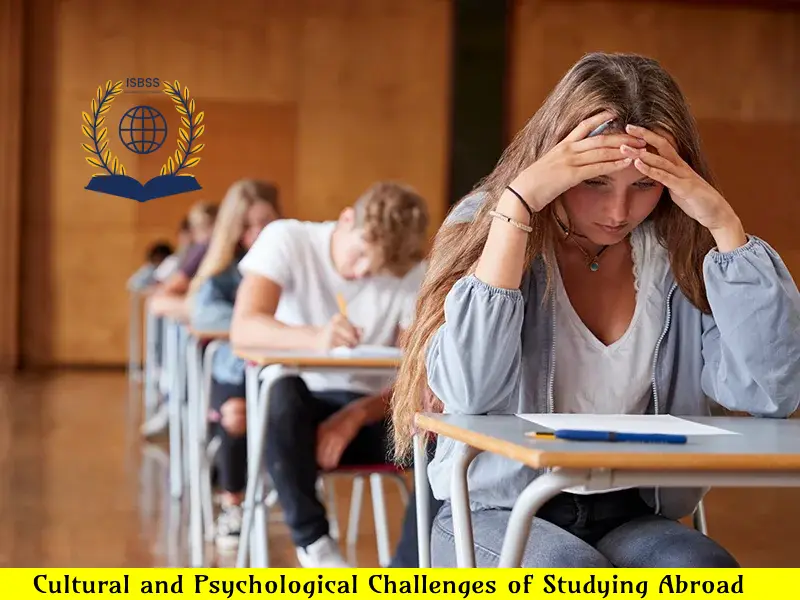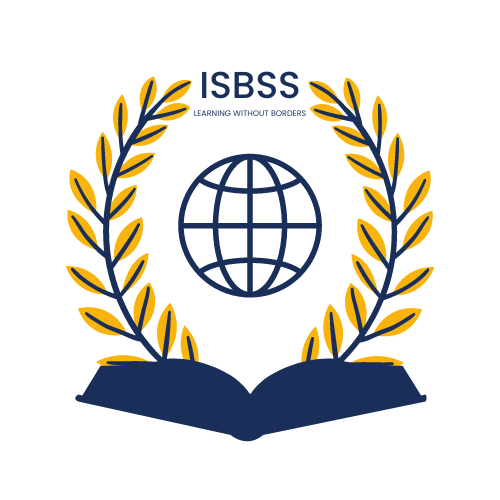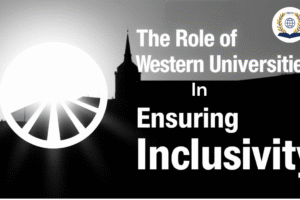
Cultural and Psychological Challenges of Studying Abroad | Study Abroad Psychology
Studying abroad is a life-changing experience, but it also comes with emotional and cultural struggles that many students don’t expect. Hence, a good study abroad psychology is necessary because adjusting to a new country means facing language barriers, different teaching styles, and unfamiliar social norms. For students from developing countries, the challenge is even greater. They often feel stuck between two worlds, one they left behind and another that doesn’t fully accept them. This struggle can lead to stress, loneliness, and self-doubt, affecting both their academic and personal lives.
Have you ever felt lost in a new environment? Many international students struggle to make friends, understand local customs, or cope with academic pressure. At the same time, they feel disconnected from home, making it difficult to find a sense of belonging. How do you manage culture shock? What can you do to stay mentally strong while adapting to a new country?
At the International School for Business and Social Studies (ISBSS), we understand the study abroad psychology challenges students face. That’s why we provide guidance and solutions to help international students adjust and thrive in their new environment. Herein, we explore the cultural and psychological struggles of studying abroad and offer practical ways to overcome them. We also explore how Western education systems fail to fully integrate international students, the emotional and psychological consequences they face, and what institutions can do to bridge the cultural gap and foster genuine inclusion.
We encourage you to also see Rethinking About International Education: Adaptation, Innovation, and Opportunity
The Cultural and Psychological Challenges of Studying Abroad
#1. Cultural Dissonance in Western Education
International students arriving in Western classrooms often experience a stark contrast in teaching styles, academic expectations, and student-teacher dynamics.
- In many developing countries, education is authority-driven. Professors lecture while students passively absorb information with little room for debate. In contrast, Western education encourages critical thinking, discussion, and direct questioning, an adjustment that can be daunting.
- Classroom participation norms differ greatly. Many international students hesitate to speak up due to fear of saying the wrong thing, fear of accents, or simply not being accustomed to open discussions.
- Assessment methods shift from memorization-based exams to essay writing, research papers, and collaborative projects, requiring skills students may not have developed before arriving.
These differences often lead to academic insecurity, where students doubt their abilities despite being highly capable in their home systems. Understanding these struggles is a key part of Study Abroad Psychology, as it highlights the deep psychological adjustments students must make.
#2. Social Alienation & The Challenge of Belonging
Adjusting to a new academic style is only part of the struggle. The greater challenge is forming meaningful connections in an unfamiliar social environment.
- Language barriers: Even those fluent in English or French struggle with regional slang, cultural references, and fast-paced conversations, making social interactions exhausting.
- Cultural misunderstandings: Social norms in Western countries can feel unfamiliar or even unwelcoming. The casual informality of Western friendships may contrast with the deep, family-like bonds that international students are accustomed to.
- Limited local friendships: International students frequently find themselves socializing only with other international students, reinforcing their isolation from the local culture.
The result? Many students experience deep loneliness, feeling like outsiders in their host country while simultaneously losing touch with their home communities. This sense of alienation is a core issue in Study Abroad Psychology, as it directly impacts emotional well-being and social integration.
You will also love to see Online Universities, Gender and Affordability
#3. The Mental Health Crisis Among International Students
These struggles take a severe toll on mental health. Studies consistently show that international students experience higher rates of anxiety, depression, and imposter syndrome than their domestic peers.
A 2022 report by the Journal of International Students found that 39% of international students reported clinical levels of anxiety and depression compared to 24% of domestic students.
- Loneliness and lack of belonging were the most cited reasons for seeking mental health support.
- Fear of failure exacerbated by the financial sacrifices their families made puts international students under immense pressure, often leading to burnout and mental exhaustion.
Despite these challenges, many students do not seek help due to cultural stigma around mental health or because university counseling services are not culturally attuned to their needs. A strong understanding of Study Abroad Psychology can help institutions develop better support systems to address these critical issues and ensure students thrive both academically and emotionally.
#4. Returning Home: The Reverse Culture Shock
After years of adjusting to a foreign country, many international students return home feeling like strangers in their own land. Instead of comfort, they face unexpected challenges.
- Family expectations vs. independence: After experiencing individualistic cultures, students return to societies where family obligations come first.
- Shifting values: Their perspectives have changed, but their home culture remains the same. This creates a disconnect with family and childhood friends.
- Job market mismatch: A foreign degree does not always guarantee career success back home. Many feel they sacrificed so much for uncertain rewards.
This “reverse culture shock” is a key issue in study abroad psychology. Students feel caught between two worlds, no longer fully belonging in either.
What Can Institutions Do? Towards a More Inclusive Model
Western universities need to do more to support international students, not just academically but also emotionally and culturally. Understanding study abroad psychology is key to creating a truly inclusive learning environment. Here’s how institutions can help:
#1. Culturally Inclusive Mental Health Services
- Hire counselors trained in study abroad psychology to address cultural adjustment struggles.
- Offer peer support groups where students can share experiences and coping strategies.
#2. Stronger Peer & Faculty Mentorship Programs
- Pair new international students with mentors who have faced similar challenges.
- Encourage faculty to guide academics, helping students adjust socially and emotionally.
#3. More Opportunities for Cultural Integration
- Organize structured exchange programs that foster real connections between international and local students.
- Partner with local communities and businesses to provide social engagement outside the university.
#4. Support for Returning Students
- Offer career counseling tailored for students transitioning back home.
- Create alumni networks to assist with re-adaptation and job opportunities.
At ISBSS, we understand the emotional and cultural challenges of studying abroad. Through expert insights and practical solutions, we help international students navigate their academic journey with confidence. By prioritizing study abroad psychology, institutions can transform international education into a truly enriching experience, both academically and personally.
Enroll for your study abroad dream program today! See Here to Apply at ISBSS
Frequently Asked Questions About Cultural and Psychological Challenges of Studying Abroad
Moving to a new country means adapting to different traditions, languages, and social norms. Many students experience culture shock, where they feel overwhelmed, isolated, or misunderstood. Differences in classroom expectations, social behaviors, and even food can make adjusting difficult. At ISBSS, we offer guidance on how to embrace cultural differences and build meaningful connections in your new environment.
International students often face stress, loneliness, and anxiety due to academic pressure and being far from home. Many also struggle with imposter syndrome, where they doubt their abilities despite being capable. Through our programs, ISBSS provides practical coping strategies to help students maintain their mental well-being and succeed in their studies.
Reverse culture shock happens when students return home after studying abroad and struggle to reconnect with their culture. They may find that their perspectives have changed, making it difficult to relate to family and friends. ISBSS helps students prepare for this transition by offering re-adaptation strategies and career guidance to ensure a smooth return home.
Cultural differences, language barriers, and unfamiliar social norms can make it hard for international students to form strong friendships with locals. Many feel like outsiders in their host country while also growing distant from their home culture. ISBSS teaches students how to build confidence, break social barriers, and create lasting relationships in their new environment.
Conclusion: The Urgent Need for Reform
Studying abroad is life-changing, but it can also be deeply isolating. While universities promote diversity, many fail to provide real cultural and psychological support beyond academics. Without proper guidance, international students often struggle with mental health challenges, cultural barriers, and reverse culture shock, issues that can impact their well-being and success.
At ISBSS, we understand the study abroad psychology behind these struggles and provide tailored solutions to help students adapt, thrive, and transition smoothly. We equip them with the right mentorship, mental health resources, and integration strategies, ensuring they not only succeed academically but also feel a true sense of belonging.
The real question institutions must ask is: Are we truly preparing international students to thrive, or just leaving them to navigate these challenges alone? The time for meaningful change is now, and ISBSS is leading the way in shaping a better future for international education.
Ready to transform your study abroad experience? Discover how ISBSS can support you today!



